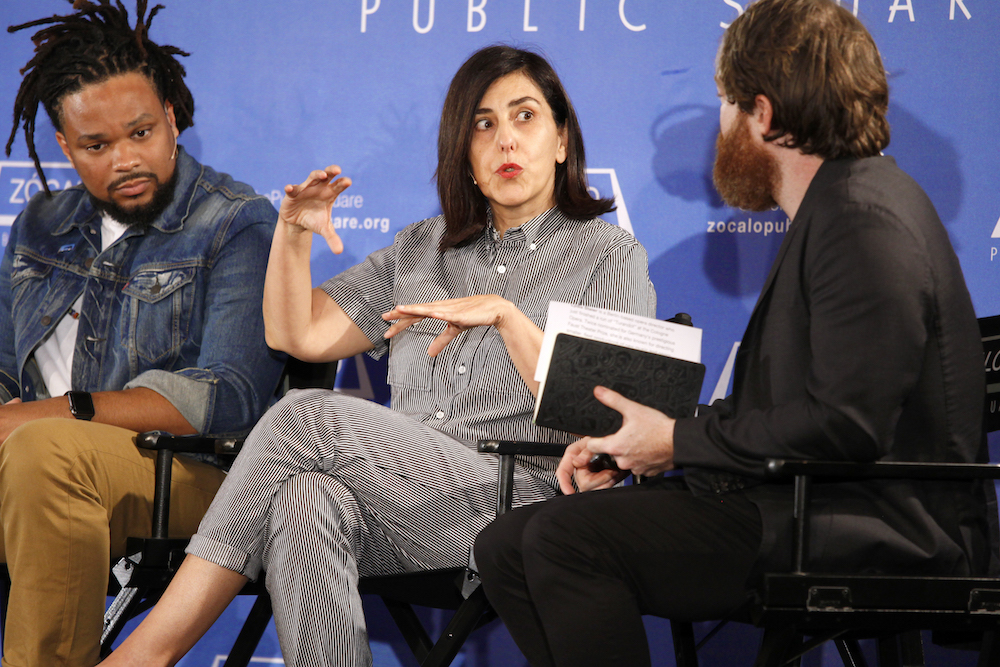
Photo by Aaron Salcido.
Rosa Ferré is chief of exhibitions at the Centre de Cultura Contemporània de Barcelona. Before taking part in a panel discussion entitled “How Is the World Innovating to Reach Broader Audiences?” as part of a Zócalo Public Square conference “What Can the World Teach California About Arts Engagement?” on June 25 in downtown Los Angeles, she chatted in the green room about art and politics, The Wind in the Willows, and eccentric feminine feelings.
What’s your happiest childhood memory?
Reading. I remember myself reading and being happy. This is one of my best moments, when I discovered the pleasure of reading. I was reading The Wind in the Willows when I was seven or eight. I used to read a lot. It was my space for intimacy and to discover the world, and it’s one of the gifts that I think I was given.
Were your parents good readers?
My father. He loved the Russian novels—Tolstoy and all this.
What are you reading right now for pleasure?
A collection of Clarice Lispector stories that I bought just two or three weeks ago. I love her. I would love to do an exhibition about her. Because at our center we deal with literary things and art. We did an exhibition on Fernando Pessoa and Jorge Luis Borges, for example. I would love her to be my next exhibition. I love her writing, these little-bit-eccentric, feminine feelings, these kind of monologues. She reminds me a little bit of Jean Rhys, who I also love—these kind of eccentric lives. I feel like they’re friends.
Was there a teacher or professor who really changed your life?
He was a teacher of comparative literature, Claudio Guillén. He was the son of the very famous Spanish poet Jorge Guillén. He changed my way of thinking in general. He taught me to work in an interdisciplinary way, because comparative literature when I was studying it was something new that had come from the United States. It didn’t have roots in Spain. So it was more like cultural studies or other things that were new at that moment. So I studied literature but also philosophy and I went into art. So he helped me see that I could move from one thing to another freely.
What was your focus in comparative literature?
I’m a specialist in 19th- and 20th-century Russian literature and art, and also Spanish literature and art. I know a lot about the relation between art and politics and power.
Did you have any heroes as a child?
My father. Because he was a doctor, and when my hamster almost died, he recovered him. The hamster had a heart attack and my father recovered him, and I thought he was God because he could give life to the dead. So I see him as someone that can do … whatever! Now he’s 90 years old, and when he’s ill it’s like a big problem for me, because he’s the one who takes care of everything. He was my hero.
Who is the person, living or dead, who you’d most like to have a beer with?
Vladimir Mayakovsky [the Russian artist, actor, playwright, and poet]. I have a strong connection with his work, but also with his personality. I’m super interested in that period, and for me he’s one of the big characters in this moment.
What’s hanging on your living room walls?
I have nothing hanging on my walls. Because I work with art and I prefer to have no static things. I’m not a collector at all. I prefer not to consume things all the time, no? I have the walls empty. Just white. I feel a freedom in not having images, because I’m working all the time with them, on exhibitions, and seeing exhibitions. I prefer to have this moment of light or nothing.



